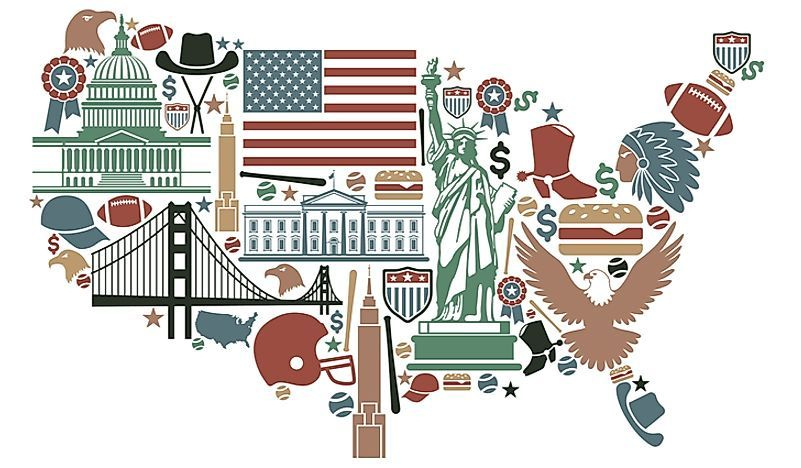Main Street Insiders - The Counterculture We Need: Part 1
My history teacher used to say that history is a pendulum. That's because young people love to rebel. They distinguish themselves from their parents by living differently. Their lifestyle is the counterculture. But when they reach adulthood, their countercultural lifestyle becomes the popular culture. Of course, their kids rebel, and the pendulum swings back the other way. She's not the first to describe history as a pendulum. It's just another framework that tries to explain why history appears to be cyclical. Here's another one: "Hard times create strong men. Strong men create good times. Good times create weak men. And, weak men create hard times." - G. Micheal Hopf. In a previous article, we explained how the US is in the "weak men create hard times" phase. It doesn't matter who you vote for when only 41% of Americans regularly go to church or one in five members of Gen Z identifies as LGBTQ. Social media has made degeneracy the norm. And Gen Z is just now reaching adulthood. They'll become parents, bosses, and leaders within the next decade, so their power and influence over our culture will only grow. Most Americans believe the US is on the wrong track but don't have the guts to do anything about it. As a result, Americans will continue to suffer until we become so miserable that we turn to something else. However, I want to recognize the small but thriving counterculture. Usually, the term counterculture is associated with movements like the hippies during the 1960s. But degeneracy has become so common that the only way for young people to rebel now is to embrace tradition. These are the people who turn to faith, prioritize their family, challenge their bodies, develop their minds, and exercise wisdom with their finances. This is the rebel lifestyle. This is how we Choose Freedom. If the pendulum theory holds true, these values will rebound. The countercultural mentality primarily applies to Gen Z and Millenials because, let's face it, those are the generations that need it the most. But you're never too young or too old to start Choosing Freedom. We've personally surrounded ourselves with people who embody the rebellion lifestyle. So our perception of the population at large is skewed. We need to look at the data for answers. This article will examine popular culture in younger generations and how it's damaging modern society. It will also explore emerging countercultural trends that offer a glimmer of hope. Financial FreedomMain Street Insider’s original focus was investing, economics, and personal finance. We continue to use those topics as jumping-off points to other areas of your life. So I’ll start by examining popular and countercultural notions of personal finance. It's undeniable that younger generations have been shaped by technology. Unfortunately, the elites use social media, targeted ads, and e-commerce as tools to encourage excessive spending (the doomsday overconsumption machine, as we like to call it). Overconsumption plagues every generation, but younger generations that grew up on technology are more accustomed to the ease of spending. They've trapped themselves in a materialistic culture that idolizes public displays of wealth. Gen Z also cares more about work-life balance. This is a good thing. We encourage Main Streeters to reexamine their priorities and ensure that work doesn't hinder health, relationships, or faith. And we applaud entrepreneurs pursuing time, energy, and location freedom by starting a business. You should always determine your ideal life and work backward rather than letting your job dictate your lifestyle. (As a finance and economics major, I've been wrestling with the tradeoffs of pursuing a demanding investment banking or private equity career). Younger generations prioritize work-life balance. But remote positions or positions with lower hours naturally provide lower salaries. Many employees are okay with that. They're willing to take a pay cut for the benefit of remote work. But they expect to finance materialistic lifestyles on lower salaries. What do you do when you want to spend more money than you have? You take out a loan. Popular culture is far too comfortable with debt. According to a report by Credit Karma, Gen Z is racking up credit card debt faster than any other generation. Even worse, they were the only generation to increase past-due debt. "Buy now, pay later" platforms like Affirm have only made it easier to finance today's pleasure with tomorrow's earnings. We're not Dave Ramsey. So we won't tell you that you should never use leverage. Nearly every business on Earth uses debt. Traders use leverage to increase their returns. Real estate investors take out loans to buy more properties (and reduce their income taxes along the way). Sometimes, it's even wise to utilize consumer debt if you can earn a higher return on the excess cash. However, racking up excessive consumer debt to buy unnecessary things you can't afford is never a good idea. Likewise, taking out student loans for a degree that won't significantly increase your earning potential is never a good idea either. As a result, younger generations try to make up the deficit by investing more in speculative assets they don't understand. According to The 2022 Investopedia Financial Literacy Survey, more than half of Gen Z adults have invested a portion of their wealth. Yet only one in four could explain the stock market to a friend. By my rough math, that means that half of Gen Z investors don't understand their investments. That’s how meme stocks with little intrinsic value can skyrocket over 400% in a week. Younger generations are also overexposed to cryptocurrency, NFTs, and other digital assets. An Investopedia survey discovered that 23% of Gen Z and 38% of millennials are invested in crypto—making up 94% of all crypto investors—compared to 6% of Baby Boomers. That's a cause for celebration and concern. CNBC believes that youth optimism for crypto represents distrust of the traditional financial system. We certainly see potential for blockchain technology to create a more efficient and decentralized economy. However, we also believe many younger investors are chasing the returns. Gen Z is used to growing up in a near-zero interest rate environment, and they naively assume that asset values will always rise. The ongoing crypto crash that began in 2022 has been a rude awakening for many young investors. There are no shortcuts. By contrast, the counterculture emphasizes hard work, productivity, and "hacking." I have several friends that started businesses or worked multiple jobs while in school. I also know a handful of people who began investing in real estate while they were in high school. And there's a growing minority of high school graduates who forego college to take lucrative blue-collar jobs. In 2022, Horizon Media and Blue Hour Studios collaborated to produce a study categorizing Gen Z into 12 subcultures. Their image of subcultures is obviously tainted by a left-wing worldview. Most of the subcultures don't even come close to accurately describing my peers. But there was one that seemed authentic. The "Adulting Hackers" (which is an idiotic name). These are young people who pursue knowledge and success as an aesthetic. They tend to follow experts in fields like personal finance or health, read popular productivity books like Atomic Habits, and purchase from utilitarian brands. The "Adulting Hackers" gain inspiration from millennial influencers like Tim Ferriss and Gary Vaynerchuk. In their personal finances, they build on the Financial Independence Retire Early (FIRE) movement popular among millennials. FIRE attempts to resolve the conflict between work-life balance and lower income by encouraging people to earn as much as possible in their 20s to retire in their 30s or 40s. Work-life balance becomes "work now and life later." FIRE proponents often go to extreme lengths to reduce costs, such as riding a bike everywhere instead of a car. Lastly, younger generations are far more entrepreneurial than previous generations. Popular shows like Shark Tank and podcasts like Entrepreneurs on Fire increased entrepreneurship in the public consciousness, and 62% of Gen Z indicated they have started or are interested in starting their own business. In my own experience with Gen Z, I agree that there is a strong counterculture of youth who continue the legacy of hard work and hustle passed down by their parents. They recognize that economic and technological development have given them more opportunities than previous generations, and they feel the responsibility to take advantage. However, I also detect that achieving financial independence is a solo quest for most young people. They're obsessed with improving themselves personally and financially. But for what? For who? Gen Z is the least religious generation in the US. And they've expressed far less interest in having children because they'd prefer to spend their money on themselves. The number one thing they'd rather spend it on? Image (clothes, beauty, make-up). Let that sink in. We'll talk about family and faith in our next article. But I brought them up now because they demonstrate the self-centered nature of Gen Z's pursuit of financial success. Many will disagree and say that younger generations are more outwardly focused than their predecessors. Youth activists dominate popular culture. And not just pro-choice rallies or climate change protests. Activism extends to every aspect of their lives, including purchasing decisions. They support brands that align with their left-wing social values and use ESG investing criteria. But their activism enriches Wall Street, large corporations, and the Chinese Communist Party (CCP) at the expense of America's poor and vulnerable. It provides no benefit except to make them feel good about themselves. Unfortunately, media and entertainment have trained younger generations to believe activism and impact are one-sided. You're either on their team, or you don't get to play at all. That’s why the right has no real answer to left-wing youth activism. What's the opposite of activism? Worrying about only yourself. That's where the counterculture is at. All they want is to be left alone. It's a microcosm for conservatism as a whole. That's why the movement is dying off. They want things to go back to normal. Whenever a major company makes a controversial statement, conservatives complain that the company should focus on its shareholders. Whenever an athlete speaks out, conservatives tell them to stick to sports. They say that people just want to live their lives without thinking about political and social issues. That's not the world we live in. The elites and the left are on a mission to take and occupy territory. Every time we give up an inch, they take a mile. It's great to see people spending less and saving more. But we need to see more of a concerted effort among all generations, especially the youth, to push back against the regime. That means shifting spending away from companies that don't share your values. That means divesting from companies engaging in un-American behavior or using your shares to influence their decisions. Your values should also guide your career. Think twice about working for a company trying to boost its ESG credentials. If you're really committed to the rebellion, start a business that disrupts the elite's empire. It doesn't have to be something big. A product or service Made in America is always a great place to start. It's not enough to be financially free. We must use our freedom to positively impact our communities and push back against popular culture activism. Social MediaMeanwhile, according to a 2019 poll conducted by Harris Poll and Lego (yes, that Lego), 29% of younger members of Gen Z said they wanted to be a Youtuber or Vlogger when they grew up. Additionally, 26% of Gen Z aspire to be a social media influencer, and 20% of Gen Z males believe that being an influencer is their only career choice (13% for females). We shouldn't be surprised. Gen Z has been conditioned from a young age to seek attention and validation through social media. And the influencer career promises a relaxing lifestyle and lucrative compensation. The only problem is that most people trying to be influencers won't succeed. There's too much content, and hopefuls are at the mercy of the algorithm. So people spend hours crafting content, hoping it will "go viral." They're essentially gambling away their time. It's a great business model for social media companies. They generate insane advertising revenue as if they were an entertainment company, but all the content is created for free in exchange for the false promise of success. Social media usage continues to dominate Gen Z. 38% percent of Gen Z spends more than four hours a day on social media, compared to 18% for other generations. According to a study conducted by Sprout Social, "the most common reason Gen Z uses social media is to kill time, making them the only generation to rank that above connecting with family and friends." And while millennials spend less time on social media than Gen Z, they consider it more important. According to the same Sprout Social study, 72% of millennials said that social media is an essential part of their lives, even higher than Gen Z (Gen X isn't off the hook either. They clocked in at 74%, the highest of any generation). We've written extensively about the detrimental effects of social media. These platforms are corporate weapons of mass destruction. They collect user data, limit free speech, damage mental health, and subversively influence thoughts, emotions, and beliefs. The rise of social media is the single most significant driver of modern decline. That's why we're encouraging people of all ages to reject or reduce their usage of social media platforms. Many of my close friends have experimented with deleting social media. So I hoped the data would show a countercultural trend. I was very disappointed to discover that was not the case. As of November 2022, only 2% of Gen Z and 7% of the rest of the population do not use social media. That's frighteningly low. We've seen an overwhelming increase in awareness of the dangerous effects of social media. In the past, as much as 34% of Gen Z wanted to leave social media. But that understanding has yet to lead to a tangible movement. No matter your age, you should honestly assess how much you’re getting out of social media versus how much you’re giving up. Then you should construct your social media usage to maximize the benefits and minimize the drawbacks. That could be periodic social media fasts, long-term breaks, strict time limits, or deleting your accounts altogether. The one exception is TikTok. Under no circumstances should you use TikTok. We chose to launch this business without Facebook ads, even though they're very effective, because we believe in this philosophy. Jeff doesn't use any social media aside from the obligatory LinkedIn profile. Meanwhile, I have friends from across the US, so I use Instagram to connect with them. However, I use strict time limits and fast from the platform for months at a time. We encourage you to adopt similar measures. That’s a counterculture we can get behind. You Are The CountercultureI rarely plan to write multi-part articles. But sometimes these topics are too deep to cover in just one newsletter. So in part two, we'll cover countercultural trends in faith, family, physical fitness, and more. Given the topics we have already explored, my initial reaction is that the thriving counterculture we hoped to discover is weaker than we'd like. It confirmed the conclusion from previous articles that no one will bail us out. It's up to us to lead this rebellion to freedom. I'm confident we're up for it. This is the way. God bless and God bless America, -Luke |
Older messages
Klaus and Me
Wednesday, May 17, 2023
The Story of a Rebel and his ChatGPT
You Get What You Pay For
Wednesday, April 26, 2023
How The Elites Are Simply a Reflection of US
Main Street Insiders Is Now Paid!
Saturday, April 8, 2023
And For All Our Supporters, Here's Our Gift To You...
The Practical Guide to Rebellion: Part 2
Sunday, March 26, 2023
WWRD?
Quick Update on SVB, Signature Bank Failures
Monday, March 13, 2023
Is This 2008 All Over Again?
You Might Also Like
I interviewed THE largest Amazon Seller [Roundup]
Monday, March 3, 2025
Need funding for your Canadian Amazon business? Not sure if you should use a Canadian corporation or US LLC to form your company? We'll cover these questions and more in our Start and Grow Your FBA
The state of data-driven decision-making for CPG brands
Monday, March 3, 2025
How marketers use purchase insights to maximize campaign performance
Facebook updates, TikTok ROI, Instagram format matches, and more
Monday, March 3, 2025
Today's Guide to the Marketing Jungle from Social Media Examiner... presented by social-media-marketing-world-logo New week, fresh insights, Reader! Stay sharp with the latest updates on AI, social
Are you losing revenue to rivals?
Monday, March 3, 2025
This is a challenge that costs businesses millions every year: Their customers are switching to competitors for various reasons... even though most of them could easily be fixed. On Tuesday, March 4,
DeepSeek’s 545% Profit Claim
Monday, March 3, 2025
PLUS: Siri 2027?!
Insurtech VC resets, readies for growth
Monday, March 3, 2025
Europe's share of regional IPOs sinks; the agtech revolution is now; hope flares for natural gas deals Read online | Don't want to receive these emails? Manage your subscription. Log in The
What I Think About The Crypto Strategic Reserve
Monday, March 3, 2025
Listen now (8 mins) | To investors, ͏ ͏ ͏ ͏ ͏ ͏ ͏ ͏ ͏ ͏ ͏ ͏ ͏ ͏ ͏ ͏ ͏ ͏ ͏ ͏ ͏ ͏ ͏ ͏ ͏ ͏ ͏ ͏ ͏ ͏ ͏ ͏ ͏ ͏ ͏ ͏ ͏ ͏ ͏ ͏ ͏ ͏ ͏ ͏ ͏ ͏ ͏ ͏ ͏ ͏ ͏ ͏ ͏ ͏ ͏ ͏ ͏ ͏ ͏ ͏ ͏ ͏ ͏ ͏ ͏ ͏ ͏ ͏ ͏ ͏ ͏ ͏ ͏ ͏ ͏ ͏ ͏ ͏ ͏ ͏ ͏ ͏ ͏
$92K BTC After Trump’s Crypto Call, MARBLEX Invests $20M—WOOF Ups the Game!
Monday, March 3, 2025
PlayToEarn Newsletter #262 - Your weekly web3 gaming news
Outperform AI
Monday, March 3, 2025
Computer jockeys everywhere are having their job security threatened by AI. To delay the machine takeover, create an AI-proof side hustle or business.
The One Question Jeff Bezos Says You Should Be Asking
Monday, March 3, 2025
“When you have something that you know is true, even over the long term, you can afford to put a lot of energy into it.”







